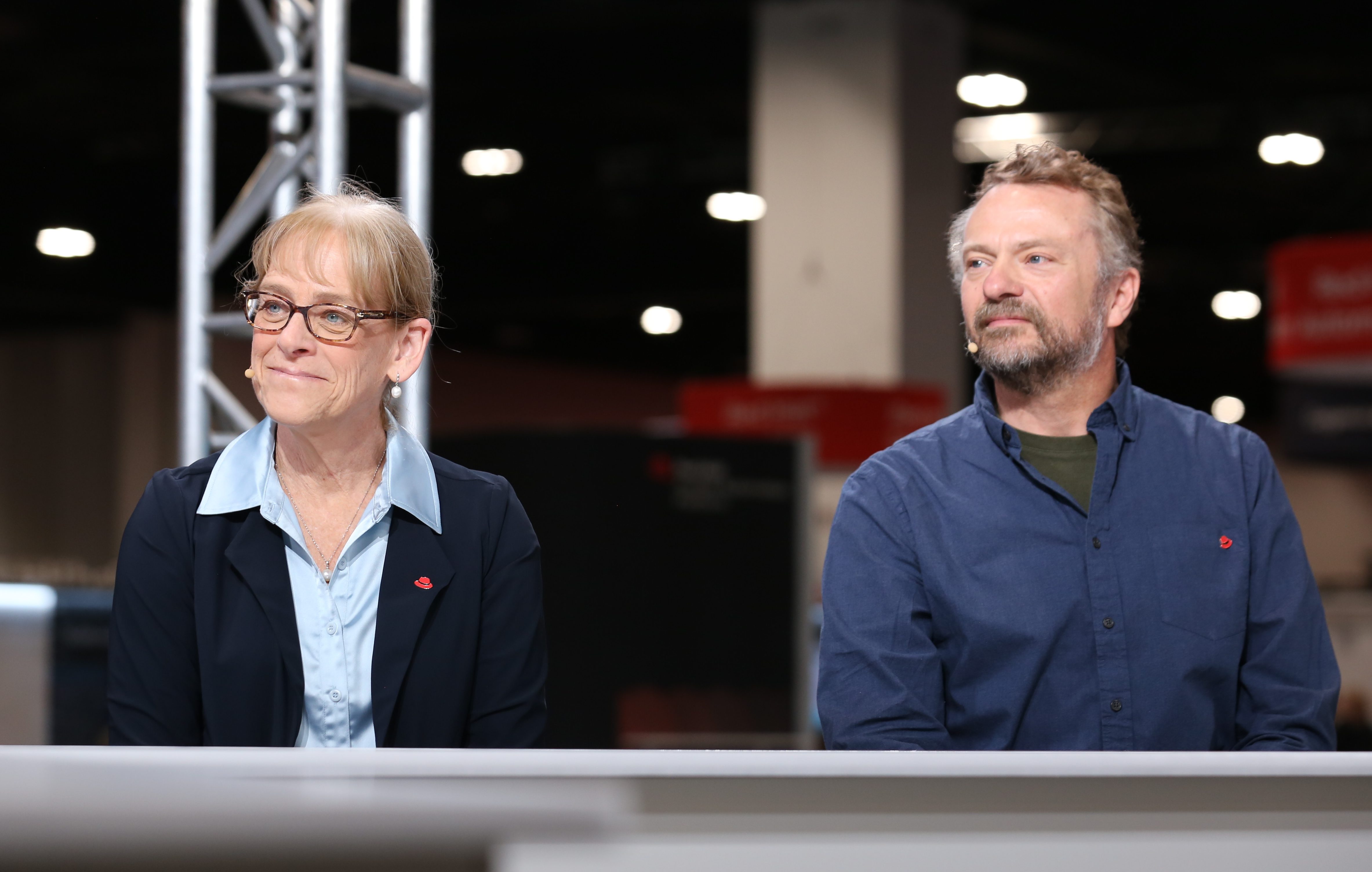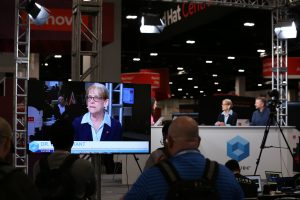 AI
AI
 AI
AI
 AI
AI
AI-assisted diagnosis is transforming healthcare by easing the cognitive load on medical professionals and enhancing decision-making.
At Boston Children’s Hospital, the use of Red Hat OpenShift AI in maternal fetal healthcare is providing more accurate diagnostics and streamlined treatments. This innovative technology promises to reduce physician burnout and improve patient outcomes, signifying the impact of AI in the medical field, according to Ellen Grant (pictured, left), director of faculty affairs for the Department of Radiology and director of research, Maternal Fetal Care Center, at Boston Children’s Hospital.

Ellen Grant and Rudolph Pienaar, both of Boston Children’s Hospital talk to theCUBE about the importance of AI-assisted diagnosis in the medical field.
“We’re developing tools … mostly on the image analysis part in terms of physician-assisted diagnosis,” Grant stated. “We’re trying to get AI to simplify things for us, like decrease the cognitive load. We’re imaging fetuses and we do MRI on fetuses because it’s one of the most accurate diagnostic modalities for fetal health. What we’ve done in collaboration with MIT is developed an AI algorithm that works on OpenShift, that takes all those images and reconstructs them and sort of shuffles them into place and gives me one coherent volume.”
Grant and Rudolph Pienaar (right), assistant professor in radiology at Boston Children’s Hospital, spoke with theCUBE Research’s Rebecca Knight and Rob Strechay at Red Hat Summit, during an exclusive broadcast on theCUBE, SiliconANGLE Media’s livestreaming studio. They discussed the importance of AI-assisted diagnosis and how Boston Children’s Hospital and Red Hat Inc. are accelerating this narrative . (* Disclosure below.)
The medical field through the technology lens requires an open-source AI approach. This is because it presents a new way of doing things, and this is why Red Hat comes in handy, according to Pienaar.
“I would say it’s fundamental to how we see things; it’s open source, open science,” he stated. “We’re not in the business to try and be proprietary about the things we do. We’re about getting things out there to help the most, the maximum number of people possible. So, the link with Red Hat is completely natural because if we develop tech that runs on a platform, I want everyone to use it, without a doubt.”
As a cloud-powered platform developed by Red Hat and Boston Children’s Hospital, ChRis Research Integration Service augments health practitioners’ capability by democratizing medical analytics. As a result, it is part of AI-assisted diagnosis intended to take the medical field to the next level, Pienaar pointed out.
“It used to stand for the Children’s Research Integration System, but as time went on, it just became recursive and it became the ChRis Research Integration system,” he said. “It’s something that sits on top of OpenShift and brings a more kind of desktop type experience to running your apps. It makes it very easy for researchers to get their programs on ChRis … they don’t have to know anything about the cloud or anything like that. So, that’s a big win.”
Here’s the complete video interview, part of SiliconANGLE’s and theCUBE Research’s coverage of Red Hat Summit:
(* Disclosure: TheCUBE is a paid media partner for the Red Hat Summit. Neither Red Hat Inc., the sponsor of theCUBE’s event coverage, nor other sponsors have editorial control over content on theCUBE or SiliconANGLE.)
THANK YOU